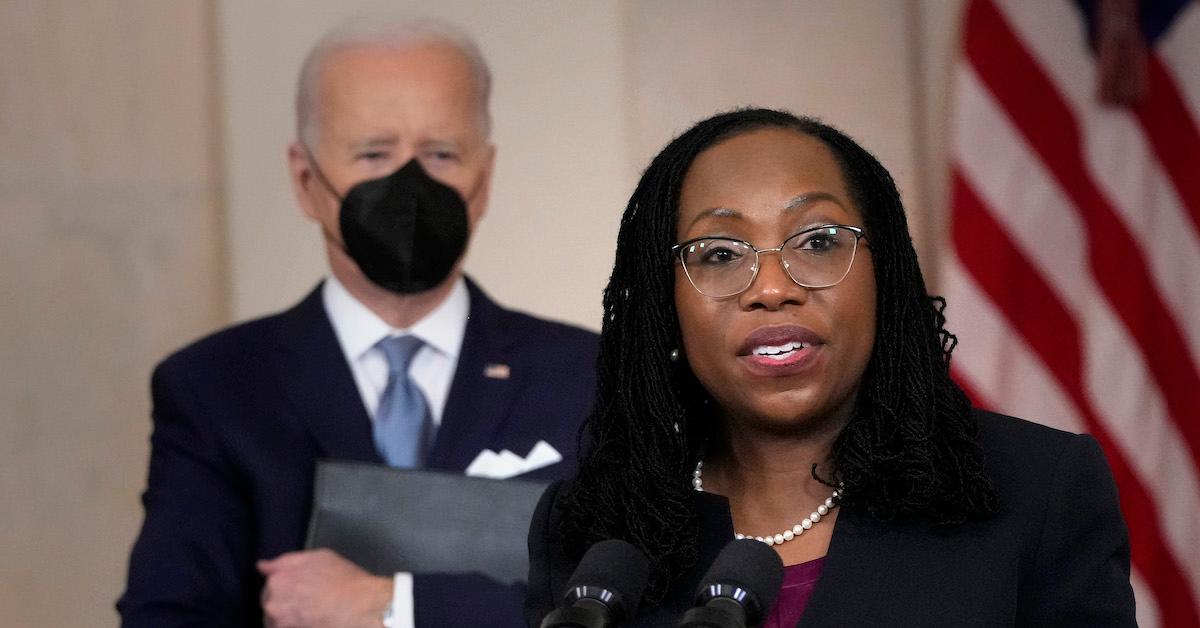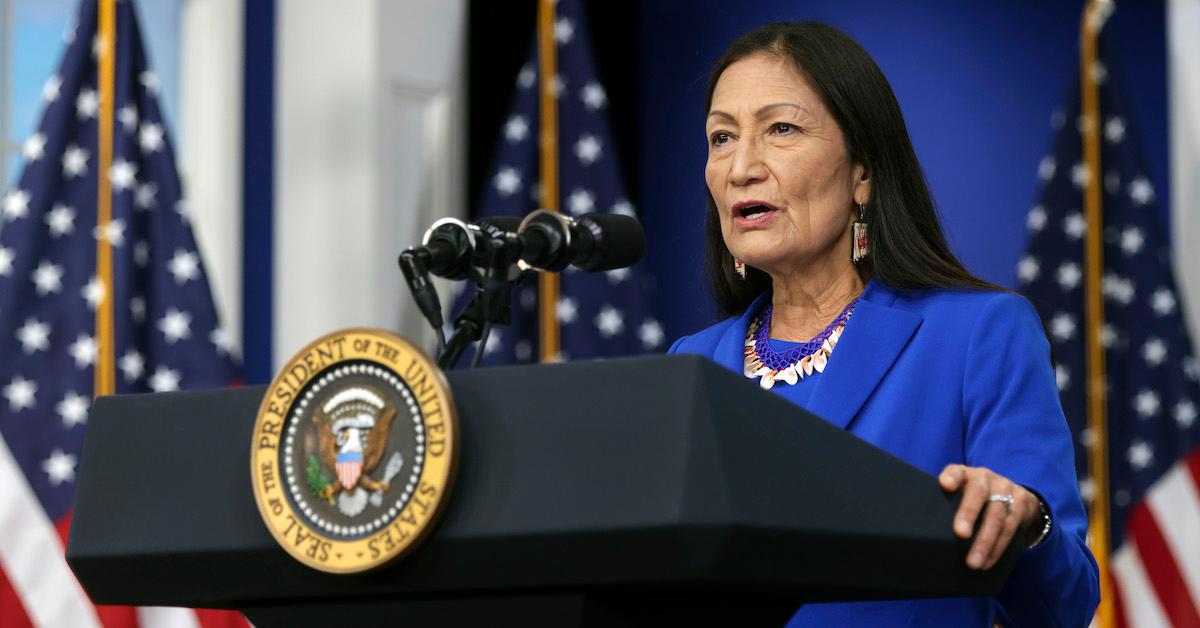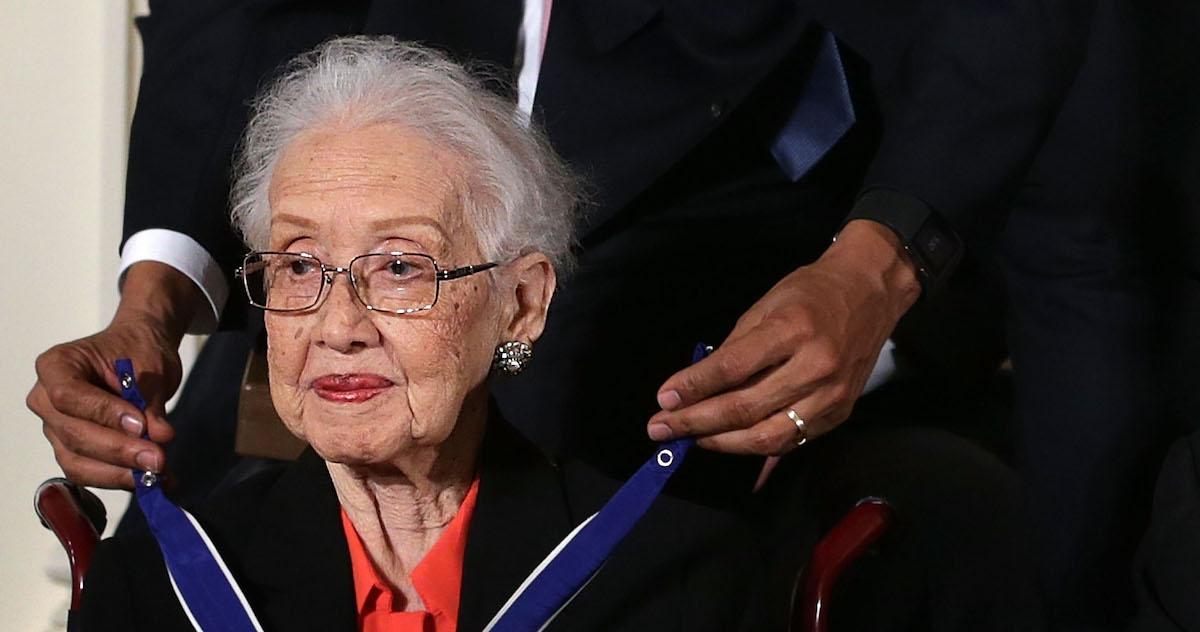It's Women’s History Month: Here Are 31 Facts, One for Each Day
Happy Women's History Month!
Updated March 4 2024, 2:45 p.m. ET

Ketanji Brown Jackson makes brief remarks after U.S. President Joe Biden introduced her as his nominee to the U.S. Supreme Court.
In the U.S. every year, the month of March marks Women’s History Month. There’s so much to learn about the history of the 31-day holiday, and so much to celebrate when it comes to some of the amazing women in American history. So keep reading for 31 Women's History Month facts — that’s one for each day of March.
Teachers, parents, and caregivers, we recommend bookmarking this article, so you can share another fact with your students or children every day of Women’s History Month!
1. Women's History Month began as Women’s History Week in 1978.
According to the National Women's History Museum, the first Women’s History Week was held in Santa Rosa, Calif. during the week of March 8, 1978. It was organized by the Education Task Force of the Sonoma County Commission on the Status of Women.
2. Women’s History Week soon spread across the country.
A number of other women’s groups soon embraced Women’s History Week, thanks to efforts by the National Women's History Alliance (then known as the National Women’s History Project, until 1980), who lobbied for the holiday to be recognized nationally.
3. Women’s History Week became a national holiday less than two years later.
In February 1980, President Jimmy Carter officially declared the Week of March 8, 1980 as National Women’s History Week, with a Presidential Proclamation.
4. The week evolved into Women's History Month less than a decade after it began.
In 1987, Congress passed a law officially turning March into Women’s History Month, and it has been nationally celebrated every year since then.
5. Every president since 1995 has formally declared March as Women’s History Month.

U.S. Vice President Kamala Harris leads a meeting with women leaders of the labor community to commemorate Women’s History Month and the passage of the American Rescue Plan in Harris’ ceremonial office in the Eisenhower Executive Office Building on March 18, 2021 in Washington, D.C.
In 1995, after a series of subsequent resolutions from Congress strengthening Women’s History Month, it had become tradition for the president to declare the holiday every year, as per the National Women's History Museum.
6. Women's History Month was held in March to coincide with International Women’s Day.
Back in 1978, the Education Task Force of the Sonoma County Commission on the Status of Women chose to hold the first Women's History Month in March in order to fall alongside International Women’s Day, a global holiday celebrated every March 8.
7. International Women’s Day has been celebrated for over a century.
International Women’s Day was first celebrated in New York City on Feb. 28, 1909. At the time, it was known as Women's Day, and hosted by the Socialist Party of America, according to the official International Women’s Day website.
8. International Women’s Day was quickly embraced around the world.
By 1911, the holiday had already evolved into International Women’s Day, and was celebrated on March 19 in a number of countries. By 1913, International Women's Day was moved to March 8.
9. The UN began honoring International Women's Day in 1975.
In 1975, the United Nations celebrated International Women's Day for the first time, and in the following years, many countries around the world officially began recognizing the annual holiday.
10. Women's History Month’s 2024 theme is all about telling stories.
Every year, the National Women's History Alliance shares a theme for Women’s History Month. For 2024, the theme is “Women Who Advocate for Equity, Diversity and Inclusion” — and the Alliance is encouraging communities nationwide to center their own 2024 celebrations around this idea.
According to the organization, this theme was chosen as a way of honoring the women "who understand that, for a positive future, we need to eliminate bias and discrimination entirely from our lives and institutions."
"Women from every background have long realized that an uneven playing field will never bring equality or justice. Many feel the critical need to speak up and work harder for fairness in our institutions and social interactions," the organization wrote. "During 2024, we recognize the example of women who are committed to embracing everyone and excluding no one in our common quest for freedom and opportunity."
11. International Women's Day’s 2023 theme is #EmbraceEquity.
On March 8, 2023, women and allies all around the world will celebrate International Women's Day, with the theme "Inspire Inclusion." The theme aims to "celebrate diversity and empowerment" in every facet of society.
"This year's campaign theme underscores the crucial role of inclusion in achieving gender equality," per the International Women's Day website. "It calls for action to break down barriers, challenge stereotypes, and create environments where all women are valued and respected."
12. You can hire an official Women's History Month performer for the holiday.
The National Women's History Alliance has a database of Costumed Performers and Authors, whom you can contact and hire to make a performance or appearance at your Women's History Month event.
13. Pocahontas was the first woman to appear on U.S. currency.
In 1865, Pocahontas became the first woman to appear on U.S. money. She was depicted amidst a group of men on the $20 bill.
14. Maya Angelou was the first Black woman on the quarter.
In early 2022, Maya Angelou became the first Black woman featured on the U.S. quarter, as part of the U.S. Mint's American Women Quarters. The poet and activist passed away in 2014, after a lifetime of creating art and fighting for equal rights.
15. Sally Ride was the first American woman to go to space.

NASA astronaut Sally Ride in the interior of the Challenger space shuttle during the STS-41-G mission, October 1984.
In June 1983, astronaut Sally Ride became the first American woman to go to space, 20 years after Valentina Tereshkova of Russia became the first woman in human history to visit space. (Ride was also featured on the U.S. quarter in 2022.)
16. Mae Jemison was the first African American woman to go to space.
Nine years later, in 1992, Mae Jemison became the first Black woman to go to space on behalf of the U.S., when she orbited the Earth in the Endeavour, as per Britannica.
17. The 19th amendment only gave white women the right to vote.
Although 1920’s 19th amendment is typically regarded as the one that gave women U.S. citizens the right to vote, the truth is, this law really only gave that right to white women. It wasn’t until 1924 that Native American women gained that same right, 1952 for Asian American women, 1935 for Puerto Rican women, and 1965 for African American women, as per PBS. And today, there are still barriers that make it more difficult for people of color to vote in the U.S.
18. Sandra Day O’Connor was the first woman to serve on the U.S. Supreme Court.
In 1981, President Ronald Reagan nominated Sandra Day O’Connor to the Supreme Court, making her the first woman to join SCOTUS.
19. Ruth Bader Ginsburg also made history on the Supreme Court.
When Ruth Bader Ginsburg joined the Supreme Court in 1993, she became the second woman to be appointed to the Supreme Court, as well as the first Jewish woman on the Supreme Court.
20. Ketanji Brown Jackson is the first Black woman on the Supreme Court.

41 years after Sandra Day O’Connor became the first woman to join the Supreme Court, in February 2022, Judge Ketanji Brown Jackson became the first Black woman to be nominated to the Supreme Court, when President Joe Biden nominated her to replace Justice Stephen Breyer.
21. Nellie Tayloe Ross was the first woman to become a state’s governor.
In 1925, Gov. Nellie Tayloe Ross was sworn in as the governor of Wyoming, making her the first woman to become a governor.
22. Madeleine Albright was the first woman Secretary of State.
In 1997, Madeleine Albright was sworn in as Secretary of State, after being nominated by President Bill Clinton. She became the first woman to hold the position, paving the way for the only other two women to become Secretaries of State: Condoleezza Rice and Hillary Clinton. Albright passed away in March 2022.
23. Hillary Clinton was the first woman to earn a presidential nomination by a major political party.
In the 2016 presidential election, Hillary Clinton was the first woman to earn a major political party’s nomination, when she won the Democratic primary. She also won the nationwide popular vote in the election, though she lost the electoral vote.
24. Amelia Earhart set a number of flying records.
Arguably the most famous pilot in American history, Amelia Earhart was the first woman to fly solo across the Atlantic Ocean, among a number of other incredible flying records.
25. Deb Haaland made history when she became Interior Secretary.

U.S. Interior Secretary Deb Haaland delivers remarks at the 2021 Tribal Nations Summit, at the Eisenhower Executive Office Building on Nov. 15, 2021 in Washington, D.C.
In 2021, President Biden confirmed former congresswoman Deb Haaland as Secretary of the Interior, making her the first Native American to ever hold a presidential Cabinet position.
26. Dr. Jill Biden is the first First Lady to maintain her independent job.
Throughout her term as Second Lady, as well as her term as First Lady (thus far), Dr. Jill Biden has retained her job of teaching English and writing at Northern Virginia Community College. This makes her the first spouse of a president to continue to hold their previous job outside of the White House.
27. Rachel Carson changed the American pesticide industry, in favor of the environment and public health.
Ecologist, environmentalist, and nature writer Rachel Carson helped set off the American environmental movement and change laws surrounding pesticide use, when she published her 1962 book Silent Spring, which called out the ways DDT and other pesticides hurt the environment and public health.
28. Marsha P. Johnson paved the way for Black trans women in the U.S.
Marsha P. Johnson, a legendary Black transgender woman and activist, was one of the key leaders of the 1969 Stonewall uprising, which has led many people to regard her as “the vanguard of the gay liberation movement” in the U.S., as per Biography.
29. Vice President Kamala Harris made history when she took on the role.
Vice President Kamala Harris was inaugurated as VP in January 2021, making her the first woman, Black American, and South Asian American to be elected into the role.
30. Katherine Johnson, Dorothy Vaughan, and Mary Jackson made history in the Space Race.

U.S. President Barack Obama presents the Presidential Medal of Freedom to former NASA mathematician Katherine Johnson on Nov. 24, 2015 at the White House.
In the Space Race of the 1960s, mathematicians Katherine Johnson, Dorothy Vaughan, and Mary Jackson made history working for NASA. Johnson was instrumental in helping astronaut John Glenn’s first orbital mission go successfully, and President Barack Obama later awarded her a Presidential Medal of Freedom. The three brilliant Black women were depicted in the 2016 biographical film Hidden Figures.
31. Dr. Kizzmekia Corbett and Dr. Nita Patel led the development of the COVID-19 vaccine.
The scientists who helped develop the COVID-19 vaccine are all true heroes. One of the central people who created the vaccine was 36-year-old Dr. Kizzmekia Corbett of Dr. Anthony Fauci’s institute. Known as Kizzy, she is an “African American scientist who is right at the forefront of the development of the vaccine,” Fauci told ABC News in 2020.
There’s also Nita Patel, 57, an Indian American scientist who leads a nearly all-women team of vaccine scientists in Maryland. "We have a power inside us,” she told CBS News, speaking about the women vaccine developers. “We are very goal oriented, very persistent in achieving that goal."
This article, originally published on Feb. 25, 2022, has been updated to reflect Women's History Month 2024.